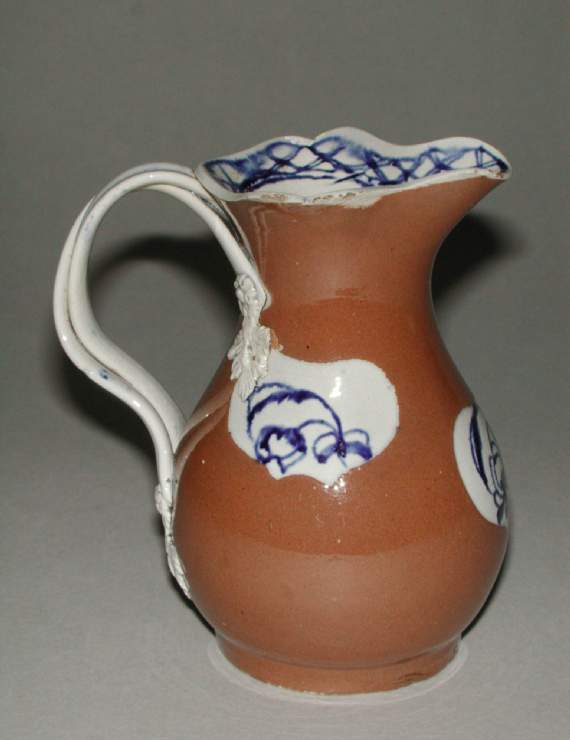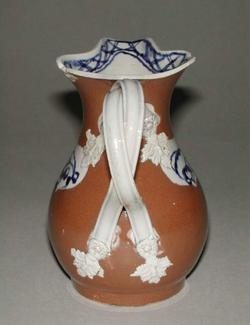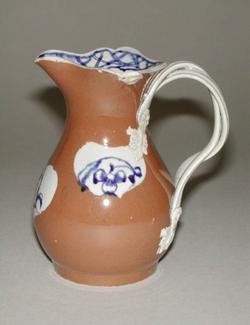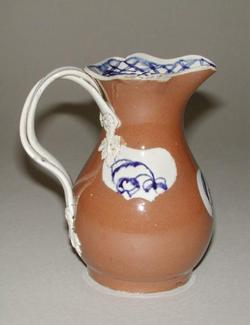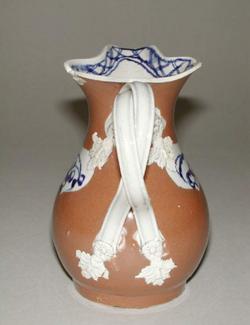Current Location: Gallery 27 (Glaisher)
Maker(s)
Production:
Unidentified English factory
Entities
Categories
Description
Pearlware jug with brown slip ground, and reserves and internal border painted underglaze in blue. 'Batavian' ware.
White earthenware decorated with brown slip and underglaze blue. The pear-shaped jug has a wavy rim with a projecting lip, and a double entwined strap handle with four flower and leaf terminals, two at the top of each strap and two at the bottom. The exterior of the body is coated in brown slip except for three reserves of roughly kidney-shape with two points on the lower edge, each painted in blue wth a stylized flower on a stalk. Inside the rim is a blue trellis border.
Notes
History note: Unknown before donor
Legal notes
Given by Mrs F.H. Hinsley
Measurements and weight
Height: 10 cm
Width: 8.8 cm
Acquisition and important dates
Method of acquisition: Given
(1971)
by
Hinsley, F. H., Mrs
Dating
18th Century, Late
19th Century, Early
Circa
1790
CE
-
1800
CE
Note
Batavian ware was named after a type of Oriental porcelain which passed through the Dutch trading post at Batavia (modern Jakarta) in Indonesia during the 18th century. It had a brown ground and reserves painted either underglaze in blue, or in enamels. The English white lead-glazed earthenware versions have a brown slip ground, most examples being a darker brown than this jug. Batavian ware was formerly attributed to the Leeds Pottery, on the basis of a reference to them in Joseph and Frank Kidson's 'Historical Notes of the Old Leeds Pottery', 1892, but John Griffin (see Documentation) did not find evidence to support this while he was researching the history and products of the Leeds Pottery. However, it seems likely that it was made in Yorkshire or Staffordshire factory. The ware is uncommon, which suggests that it was not made in large quantities. Lois Roberts (see Documentation) concluded after studying Batavian wares were several types of decoration, that the 'Fuschia' pattern examples probably dated from around 1795.
Components of the work
Decoration
composed of
high-temperature colour
( cobalt blue)
slip
Materials used in production
bluish
Lead-glaze
Earthenware
References and bibliographic entries
Identification numbers
Accession number: C.13-1971
Primary reference Number: 71796
Stable URI
Audit data
Created: Saturday 6 August 2011
Updated: Tuesday 30 April 2024
Last processed: Tuesday 13 May 2025
Associated departments & institutions
Owner or interested party:
The Fitzwilliam Museum
Associated department:
Applied Arts
